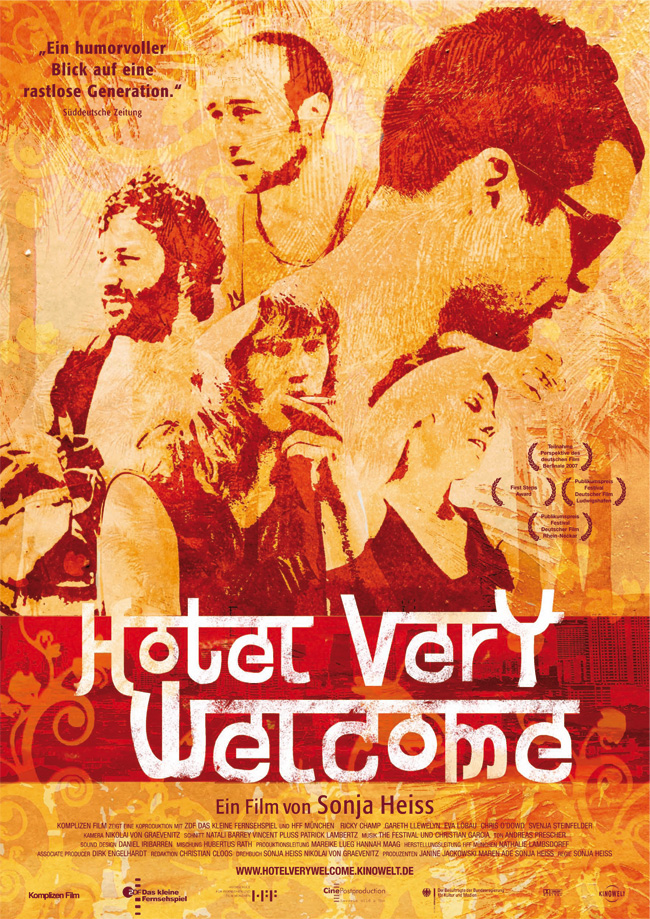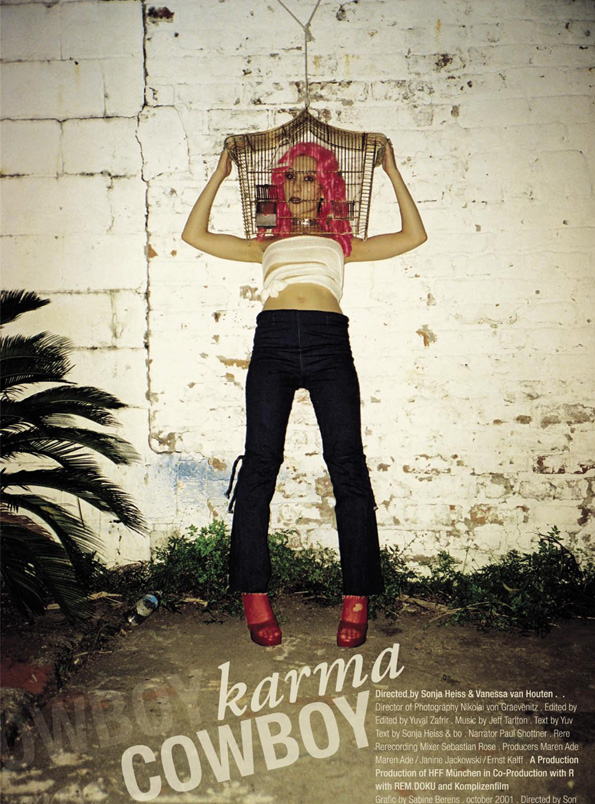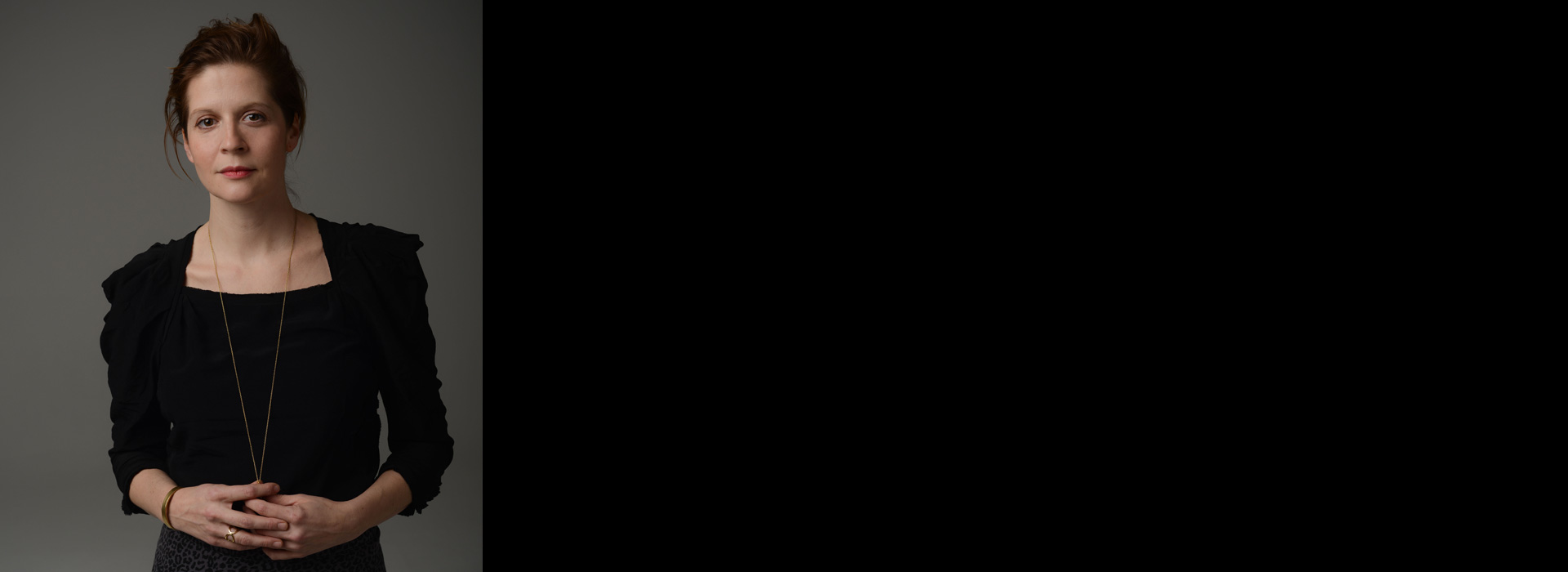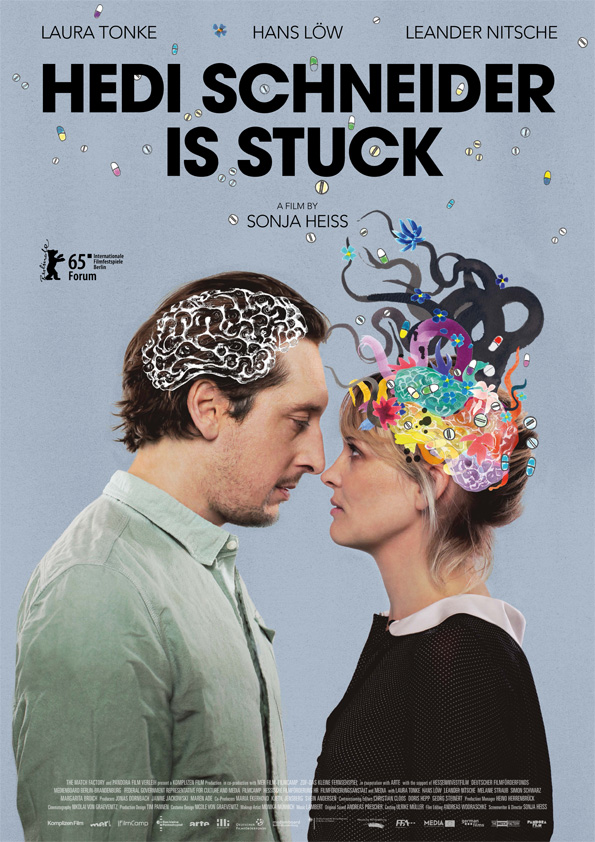A PORTRAIT OF DIRECTOR & AUTHOR SONJA HEISS
photo © Peter HartwigThe title of the new film by Berlin-based director Sonja Heiss is HEDI SCHNEIDER IS STUCK and at first, we are to understand it literally: right at the beginning, the lift that should be taking perky Hedi — in her mid-thirties — up to her office floor suddenly comes to a stop – as if she wasn’t late for work already! Of course, Hedi is soon rescued, but the scene in the lift sums up her entire situation. She is a working mother and wife who, scurrying from her office to the children’s day care center, eternally busy with household chores and visits to relatives, experiences a panic attack that culminates in a massive anxiety disorder. For months on end, Hedi is caught in a kind of paralysis. This second feature film by Sonja Heiss, witty, cool and at the same time very serious, tells of the effects of her illness on her otherwise happy nuclear family and on the loving relationship to her husband, Uli.
Asked whether the immense strain on women of her generation is what triggers Hedi’s illness, the director, who is about the same age as her protagonist, responds: “I didn’t want to give a reason, but I don’t know anyone who manages to do everything she has decided to do, even on one single day. I also have a to-do list, which just grows longer and longer. We are over-stressed and we set ourselves high targets: we think we need to be perfect mothers and successful in our work, and we have to enjoy a good sex life because time passes so quickly and life is so short. But above all, we must be incredibly happy.”
The protagonists of Sonja Heiss’ first full-length feature film, HOTEL VERY WELCOME, were also searching, with only moderate success, for happiness. It was premiered in the section Perspektive Deutsches Kino at the Berlinale 2007. Employing a tiny team and comparatively simple technology, she made a travel film in India and Thailand, for which her five actors from Germany and Great Britain were called upon to interact, in real situations, with lay actors chosen through castings.
“We always traveled with just one actor for a month, filming the episode, and then the next one came. We spent four months on the road because we had no money for preparation, so we didn’t look for the locations and supporting actors until we got there. That made it a very cheap film,” Heiss explains. “Including absolutely everything, it only cost 350,000 euros.” However, this low budget was combined with huge personal commitment from all those involved: “The shooting was a truly borderline experience: a combination of chaos, heat, illnesses, sleeplessness, bribery, and some other dicey situations,” Heiss recalls, almost with a little nostalgia, and she adds cheerfully: “Because that shooting work demanded extreme flexibility and spontaneity from me, it was a fantastic school of filmmaking, where unexpected and chaotic situations are always part of the everyday agenda.”


Posters courtesy of Komplizen Film
HOTEL VERY WELCOME doesn’t look as if the shooting conditions were difficult; despite the sometimes messy situations in which the characters find themselves, this film is also light and upbeat. The director, who hails from Bavaria, has no liking for mawkishness – but she doesn’t approve of a cracking, and therefore very German, type of comedy, either. Her films operate on a fine line between seriousness and buoyancy; Heiss avoids pathos and clichés with a sure hand, almost in her sleep, it seems. “I believe that German humor has a poor reputation internationally,” she says, “and that is a shame, of course, because in Bavaria or in Northern Germany as well there are certain types of dry humor, which I think are amazing – you may even find it in Berlin, occasionally,” she says jokingly. Humor has much to do with courage, the filmmaker believes: “The actors that I worked with had a private sense of humor as well. But above all, they had the courage to take risks. In every take in which they aim to be funny, actors ultimately risk the danger that no one will laugh. They brave the possibility of making themselves look ridiculous every other minute, so to speak. In front of 20, 30, 40 people, or perhaps even in front of thousands.”
Sonja Heiss herself was courageous when she traveled to the USA together with Vanessa van Houten in 2000 to film a fictive story told by real people. The two of them visited people in trailer parks and asked them about the key themes in their lives; later, they selected those passages that fitted in with their film subject, “A man disappears.” What emerged from this was KARMA COWBOY, a conceptual, aesthetically unique and extremely successful mid-length film. That debut seemed to mark the start of a path along which the director has moved away from the documentary step by step, although she has not completely abandoned its unstaged reality, even now. But if things continue in this fashion, surely at some point Heiss will arrive at science fiction. First of all, however, she has other things on her mind: she is writing a book — once again, all about life and the impossibility of enduring happiness. Or at least, it is a family novel, possibly also a little autobiographical?
“Of course, there is something of my own life in everything that I do, including in the collection of short stories I have written, Happiness Runs Out. Your own life is always a good source of material. That’s one of the practical things about this profession: when you experience awful things, at least you can turn them into art afterwards.”
Daniela Sannwald


